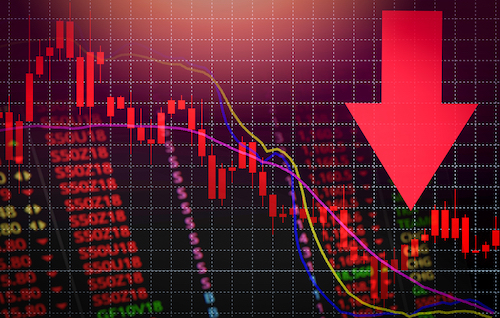 The Great Recession, officially spanning from 2007 to 2009, impacted many people across the United States.
The Great Recession, officially spanning from 2007 to 2009, impacted many people across the United States.
Now, researchers have determined that those who experienced a job-related, housing-related, or financial hardship during the Great Recession are more likely to experience an increase in anxiety, depression and drug use.
The study, published in Clinical Psychological Science, found that these mental health impacts were still evident years after the recession officially ended.
“The scope of The Great Recession's impact on individuals' mental health in the US is not well understood. We wanted to understand the effects both at the population level and for individuals who were affected by the recession, which is particularly important for policy and planning for future recessions, as well as for determining whether we need targeted interventions related to specific types of recession impacts, mental health domains, or sociodemographic groups,” Miriam K Forbes, lead researcher of the study who began the work at the University of Minnesota and is now based at Macquarie University in Sydney, Australia, told Theravive.
She said that a person who experienced even a single hardship due to the recession still had a higher chance of negative mental health outcomes like panic, depression and generalised anxiety. This was seen even three years after the recession.
Those adverse mental health outcomes were even more significant for those who experienced great loss during the recession or who didn’t have what Forbes referred to as a “strong safety net”.
In undertaking the research, Forbes, along with Robert Krueger from the University of Minnesota, looked at data that was collected during the Midlife in the United States study for adults aged 25 to 75. They focused on data from 2003-2004 (three years before the recession) and 2012-2013 (three years after the recession was over).
They looked at the surveyed participants mental health symptoms, alcohol or drug use. For the 2012-2013 data, they were also able to see data relating to whether participants had experienced any impact from the recession such as job loss, missed mortgage payments or declaring bankruptcy.
The prevalence of negative mental health outcomes for the full sample of data was stable or decreased from the first wave in 2003-2004 to the second in 2012-2013. However, when the researchers focused in on the mental health outcomes in relation to recession hardship, things were different.
Every recession hardship experienced was associated with an increased risk of negative mental health outcomes and issues of drug use. This was true even after the researchers considered any previous mental health issues, or other sociodemographic factors.
Those who had greater financial advantage were found to have a significant impact to their mental health due to recession hardships. Those who were wealthy but experienced hardship were more likely to experience anxiety due to housing related issues and were also more likely to turn to drugs as a result of their financial hardships. The same could not be said for those who were considered less advantaged. The researchers believe this may be reflective of the fact that those who were once well off who had to sell possessions or move in with family or friends felt this was a significant loss or hardship given they previously lived in comfort.
Forbes and Krueger also found that those without a college education were more likely to experience anxiety symptoms due to job-related hardships. People who lived without a spouse or a partner were more likely to experience problems in relation to drug-use due to housing-related hardships in the recession.
Forbes says it is important that researchers examine the impacts of the great recession on an individual level, rather than a population level, to get an accurate understanding of its impact.
“What was interesting to me was that at the population level, we saw that each of the mental health outcomes (clinically significant symptoms of depression, panic, generalized anxiety, problematic alcohol use, and problematic drug use) remained stable or decreased slightly in prevalence over the time frame we looked at. So population-level analyses would not suggest that the recession was associated with significant or lasting declines in mental health,” she told Theravive.
“However, people who experienced even a single recession-related hardship still had higher odds of symptoms of depression, generalized anxiety, panic, and problematic substance use three to four years after recession had ended. We needed individual-level data (i.e., asking individuals about their mental health and experiences during the recession) to be able to see those relationships.”
Some predictions suggest the next economic downturn could occur as early as 2020. Forbes says policy makers should look to invest in mental health support to prepare for future recessions.
“Broadly, these results suggest that the adverse effects of The Great Recession on individuals' mental health may have compounded and prolonged its economic costs, so government-funded mental health support in future recessions would likely not only ease individuals' burdens, but could be a sound investment that may act to stimulate faster economic recovery,” she said.
Elizabeth Pratt is a medical journalist and producer. Her work has appeared on Healthline, The Huffington Post, Fox News, The Australian Broadcasting Corporation, The Sydney Morning Herald, News.com.au, Escape, The Cusp and Skyscanner. You can read more of her articles here. Or learn more about Elizabeth and contact her via her LinkedIn and Twitter profiles.